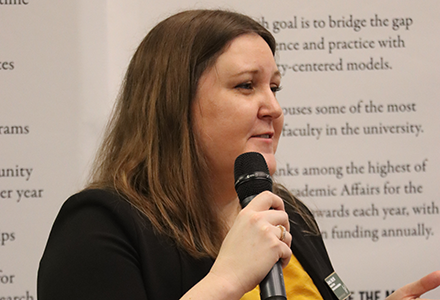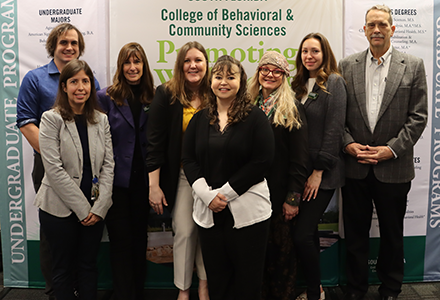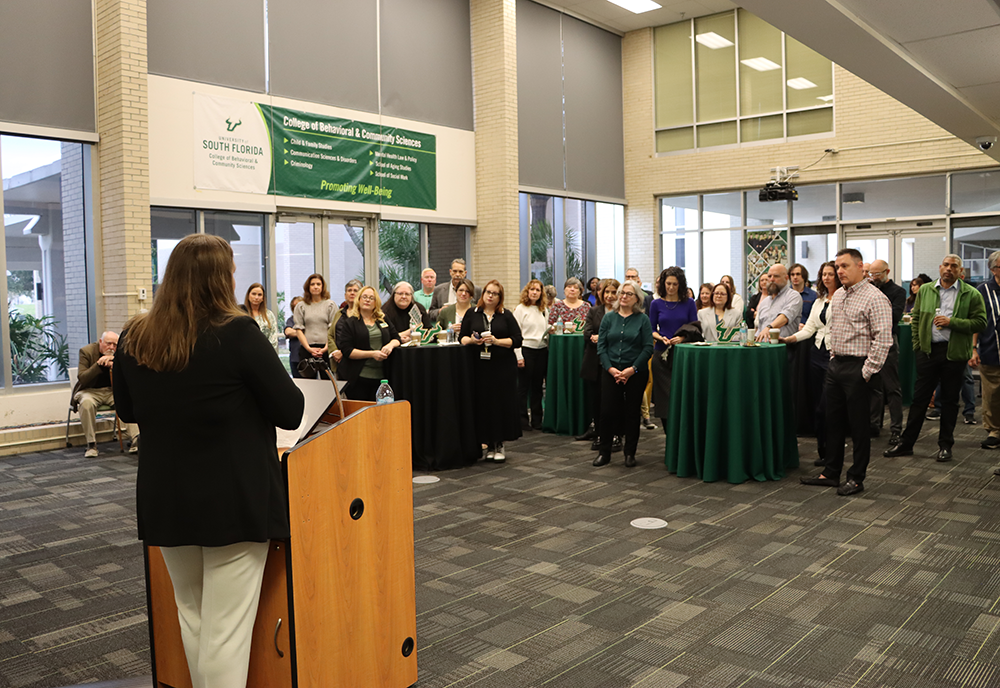As part of its mission to develop a deeper understanding of the factors driving the state's behavioral health workforce shortage, the newly established Florida Center for Behavioral Health Workforce (FCBHW) will build a comprehensive website and an interactive data dashboard that identifies gaps in both the workforce and education and training opportunities, according to an update shared by Executive Director Courtney Whitt, PhD. Additionally, the center will advance professional development in the field through distance learning and conduct original research, beginning with a statewide behavioral health workforce survey and an examination of the impact of interstate practice compacts.
Whitt announced these plans during the center’s inaugural event on Monday morning, during which she spoke with community leaders, representatives of behavioral health organizations, and researchers and faculty members who share the center’s commitment to strengthening Florida’s behavioral health workforce.
“We’ve been met with enthusiasm, optimism, and a shared commitment to collective action aimed at innovating and strengthening the behavioral health workforce and broader systems of care,” Whitt said. "These discussions have provided valuable insights from multiple vantage points into workforce gaps, opportunities for growth, and innovative strategies that will inform our initiatives and strategic goals.”

Courtney Whitt, executive director of the Florida Center for Behavioral Health Workforce, speaks to event attendees.
Over the past three months, Whitt has represented the center in meetings with more than 30 regional, state, and national stakeholders. The center has joined the newly established Behavioral Healthcare Workforce Center Alliance, which offers opportunities to share best practices and collaborate with national leaders. In December, the center also participated in the Substance Abuse and Mental Health Services Administration policy summit in Washington, DC.
While citing the pressing need to advance behavioral health services in the state of Florida, Whitt acknowledged the University of South Florida College of Behavioral and Community Sciences' longstanding contributions to the mental health landscape, the university's legacy of trusted service to the state through the work of the Louis de la Parte Florida Mental Health Institute, and the progress already made by community organizations and behavioral health associations.
"We have a tall order ahead in growing, retaining, and innovating the behavioral health workforce," said Whitt. "But we are not starting from scratch and we are not doing it alone. We are aligned in our mission to do common sense things that will have the greatest impact for the most people."

Florida Center for Behavioral Health Workforce staff (left to right): Jacob Gray, Maria Santoro Ramos, Dina Cooper, Courtney Whitt, Emilie Ellenberg, Alexxis Avalon, Sydney Gilmore-Duffey, Oliver Massey
Whitt introduced additional members of the center team, including:
- Alexxis Avalon, PhD, office administrator
- Dina Cooper, assistant director of finance and budget
- Emilie Ellenberg, MA, graduate research assistant
- Sydney Gilmore-Duffey, MA, communications and marketing officer
- Jacob Gray, PhD, assistant research professor and statistician
- Oliver T. Massey, PhD, interim director of the research and dissemination core
- Mariana Santoro Ramos, MS, MBA, fiscal and business specialist
The center was established by the state of Florida as part of Senate Bill 330 sponsored by Sen. Jim Boyd and Rep. Sam Garrison. The bill was included in the Live Healthy legislation package and aims to identify ways in which Florida can recruit and retain essential behavioral health professionals, thereby increasing access to behavioral health care for those who need it. The team recently submitted the first legislative report on the center's work to Florida Gov. Ron DeSantis, Senate President Ben Albritton, and Speaker of the House Daniel Perez.
